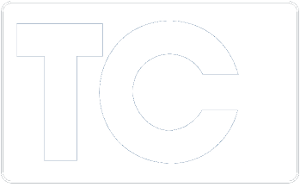7 Steps to Smarter Contact Center Coverage Scheduling
Contact center managers are under a lot of pressure to deliver better results with fewer resources. Meanwhile, diminishing corporate budgets are forcing organizations to think of creative ways to compensate staff. These include pay-as-you-go arrangements in the form of zero-hour contracts, reduced and annualized working hours, and time off without pay.
How then can organizations achieve all-around contact center flexibility and cost savings in a way that satisfies staff, customers, and the business?
It comes down to leveraging the top 7 capabilities and benefits of today’s automated Workforce Management technology:
1. All-In-One, Easy-to-Use Solutions
The biggest barrier to embracing new technology is ease of use, or rather the lack of it. Fortunately, today’s fully automated solutions make light work of managing staff effectively – forecasting demand, creating schedules, developing accurate and insightful reports, and improving overall customer satisfaction. These automated tools make it easy and efficient to optimize workforce management.
2. Easy Access, Anytime, Anywhere
Agents can log in from home or on the go to check their schedules, see whom they are working with, and let their managers know when they are available. Managers and resource teams are able to build efficient schedules at any time and from anywhere for complete control of their call center scheduling operations.
3. Intelligent Resourcing
Using historical data, resource teams have the power to predict at the click of a button how many agents they will need, the skills they require, and who the right people are to fill those roles. They can even support a number of different shift patterns, including short shifts or split shifts, rather than employ a set number of people at set times of the day.
4. Flexible Planning On the Go
Key features provide much-needed flexibility. Real-time adherence monitors agent adherence to schedules. Automated alarms flag when schedules are in danger of being breached, and a real-time data feed – updated in seconds – enables fast decision-making.
Intra-day scheduling allows small changes during the day while considering unplanned agent absences and changes in customer demand. For example, managers can flexibly change break times and lunches or move people between skill groups, as well as front-office and back-office work. The changes may differ by only a few minutes, but those small changes can make the difference between meeting service levels during peak times and losing valuable calls.
5. Fit for the Future
The latest forecasting scheduling technology helps to right-size your contact center for the future. Running a series of “what if?” scenarios can predict staffing needs for regular seasonal fluctuations, upcoming marketing campaigns, and even the organization’s long-term business plan.
6. Self-Service
Self-service capabilities empower agents to trade shifts, voice their preferences for overtime shifts and request time off, increasing contact center flexibility and agent satisfaction. Plus, setting up auto-approvals means your staff doesn’t have to wait until the next day for an answer if management is not available.
7. Time and Cost Efficiencies
The automation provided by workforce optimization technology combines strategic planning with instant fine-tuning throughout the day to create a highly flexible contact center framework that keeps agents motivated, customers satisfied and CEOs happy.
Contact Center management continues to evolve. Ready to explore the latest innovations? Contact TCI experts today: (703) 321-3030 or GetHelp@tcicomm.com.

